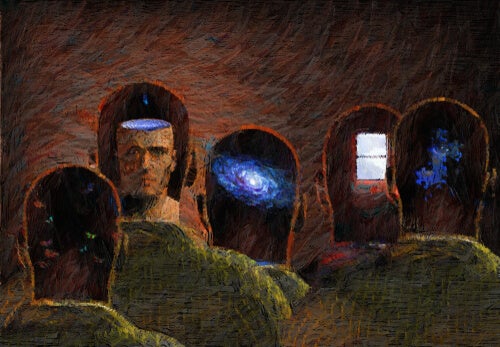Frieda Fromm-Reichmann and Psychoanalysis

Frieda Fromm-Reichmann was a rather peculiar psychiatrist who came up with another way to treat ‘mentally ill’ patients that didn’t involve physical repression or drugs. She was also one of the great disseminators of psychoanalytic ideas in the United States.
She’s definitely a revolutionary when it comes to the treatment of schizophrenia. Part of her popularity is due to the fact that she treated and cured Joanne Greenberg, a woman whose cure seemed impossible and whom most professionals in the field considered insane. Therapy with Frieda Fromm-Reichmann not only brought her back to sanity but she went on to become an influential novelist.
Her major work, published in 1950, is Principles of Intensive Psychotherapy. Frieda Fromm-Reichmann should have a more relevant place in the history of psychoanalysis, as she’s one of the most prolific and outstanding neo-Freudians.
“People don’t come to therapy for exclamation; they come for experience.”
-Joanne Greenberg-

Frieda Fromm-Reichmann, a brilliant girl
She was born in Germany on October 23, 1889, to a middle-class conservative Jewish family. She was the eldest of several siblings, all of them male. For this reason, her father gave her privileges uncommon for a woman at the time.
For one, she was able to attend college to study medicine at the University of Königsberg, where she graduated at the age of 19. She had a doctorate in neurology and psychiatry at the age of 22. Furthermore, she loved her craft and proved it by committing herself to it for life.
She first worked with soldiers who had experienced brain injuries during World War I. Her first articles date from this period and all of them were clearly scientific. Moreover, her perspective and work took a turn afterward.
Fromm-Reichmann and the practice of psychoanalysis
Frieda Fromm-Reichmann ceased to be interested in the organic field of her profession and embarked on a new path. J.H. Schultz provided her with some essays on Freudian psychoanalysis, which immediately captured her attention. In particular, she was interested in the subject of the therapeutic relationship, transference, and countertransference.
Erich Fromm, a rather peculiar man, came to see her. They had already met in some psychoanalytic circles. He later became her husband and they had a stormy relationship that lasted until the day he died. She kept his name, even after their divorce.
Frieda had to flee from Germany when the rise of Nazism began due to her ethnicity. She waited in several countries and finally settled with her husband in the United States. She continued practicing psychoanalytic theory there after the end of the war.
Fromm-Reichmann’s special patient
She worked in the private clinic at Chesnut Lodge (Rockville, Maryland) for more than 22 years. It was there where she developed intensive psychotherapy and applied it as a fundamental element in the treatment of schizophrenia.
She treated Joanne Greenberg around the same time. She was a permanently institutionalized teenager who had hallucinations about eight characters. In fact, she used a language with them that no one else spoke. Most believed her to be crazy.
The therapeutic process progressed and Frieda made a pact with her. Each would write a memoir of the process, from their own perspective. In the end, the two published a book that contained both versions.

I Never Promised You a Rose Garden
Joanne Greenberg’s cure was amazing. Fromm-Reichmann died on April 28, 1957, at the age of 67, without seeing her work with Greenberg completed. She had a heart attack which doctors attributed to her excessive smoking and drinking. The project with her patient was short, unfortunately.
This loss was devastating for Greenberg but she was determined to keep her promise. She wrote the book I Never Promised You a Rose Garden based on what she learned in therapy. In it, she described her extraordinary journey from madness to reason. It was a journey she made with the guidance of Frieda and without medication.
Finally, Frieda Fromm-Reichmann’s therapeutic approach was to empathize with her patients and achieve a respectful understanding of the root of their symptoms. She noticed that just establishing this deep and affectionate relationship led to significant changes in her patients. In spite of this, her work is sort of in the background, probably due to the boom in pharmacological advances that leave little room for her proposal.
All cited sources were thoroughly reviewed by our team to ensure their quality, reliability, currency, and validity. The bibliography of this article was considered reliable and of academic or scientific accuracy.
- Delahanty, G. (2006). Frieda Fromm-Reichmann y la psicoterapia intensiva en la esquizofrenia. Neurología, Neurocirugía y Psiquiatría, 39(1), 12-23.
This text is provided for informational purposes only and does not replace consultation with a professional. If in doubt, consult your specialist.








